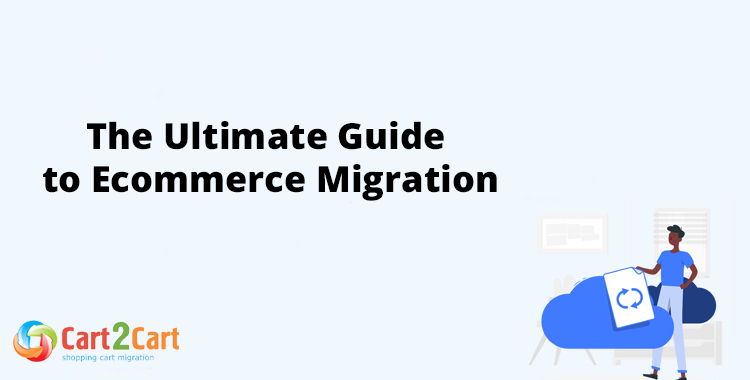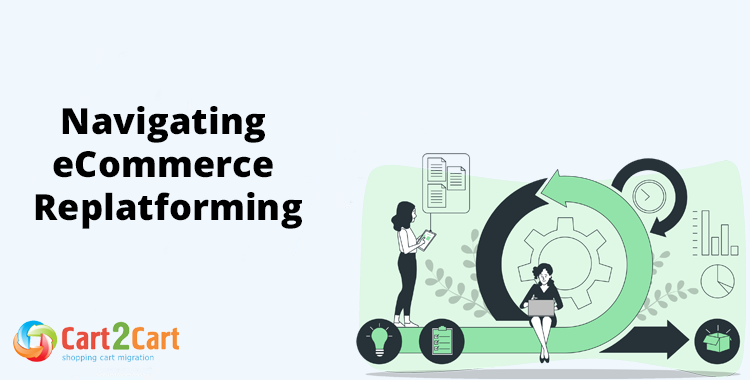Saleor Migration
Considering a Saleor Migration? Cart2Cart offers a fully automated, secure, and fast solution to migrate from Saleor, typically completed in just a few hours. We understand the concerns surrounding eCommerce platform changes; that's why our process guarantees zero downtime for your existing store. Trust Cart2Cart to handle the comprehensive transfer of your valuable data, including products, customers, orders, SEO URLs, and much more. With years of experience and thousands of successful migrations, we're the experts you can rely on for a seamless and risk-free transition.
How to Migrate to Saleor
This step-by-step guide details how to securely migrate to Saleor from any other e-commerce platform using Cart2Cart, ensuring complete data integrity for your online storefront.
- Register and Initiate: Create a Cart2Cart account to begin your platform switch. This initial step is free and takes only a minute.
- Connect Your Source Store: Provide the credentials for your current platform to allow secure API access for the data transfer.
- Connect Saleor Target Store: Prepare your data in a CSV file according to Saleor's import requirements. You will upload this file to Cart2Cart to map the data fields correctly for the transition.
- Select Data and Options: Choose which data entities to move, including products, SKUs, and customer orders. Configure crucial options like 301 redirects to preserve your SEO rankings.
- Run a Free Demo Migration: Launch a free test transfer to move a limited set of your data. This allows you to check the results directly in your new Saleor store before the full replatforming.
- Launch the Full Migration: Once satisfied with the demo, start the full migration. The process runs on our servers, ensuring no downtime for your business.
Pro-Tip: Since this is a file-based migration, ensure your CSV file is correctly formatted before import. No additional plugins are required for this transfer process, simplifying the setup.
Automated migration
Just set up the migration and choose the entities to move – the service will do the rest.
Try It Free
Data Migration Service Package
Delegate the job to the highly-skilled migration experts and get the job done.
Choose Package
What data can be migrated from/to Saleor
-
Products
-
Product Categories
-
Manufacturers
-
Customers
-
Orders
Choose all the extra migration options and get 40% off their total Price
We’re committed to protecting our customers’ data security. Check out our Security Policy
The Cart2Cart service has all the necessary functionality to migrate store databases on Saleor of any size and complexity. Below are the most popular migration directions among our customers:
Help Center
Let’s figure out everything about Saleor migration through
Cart2Cart.
Discover our checklist, related articles, and answers on frequently asked questions.

 June 7, 2023
June 7, 2023 The Ultimate Guide to eCommerce Migration: How-To Directions and Best Practices
Read full articlePay only for what you migrate - the cost depends on the number of records to be moved
Estimate Your Saleor Migration Cost
Get a clear, instant estimate for your Saleor migration cost. Our tool provides transparent Saleor migration pricing tailored to your needs, ensuring you understand the full Saleor migration price with no hidden fees as you plan your move to Saleor.
Saleor Monthly Pulse: The Composable Momentum Report
This month's analysis of the Saleor e-commerce platform reveals a focused strategy of deepening its enterprise-grade capabilities while empowering developers. The narrative is not one of explosive, broad-market growth, but of deliberate, strategic enhancements designed to attract and retain high-value merchants. Saleor is solidifying its position as a leading choice for businesses that demand unparalleled flexibility and performance in a composable, headless architecture. The following is our in-depth assessment.
Assessing Saleor's Enterprise Trajectory
While Saleor does not publicly disclose GMV figures, its influence within the composable commerce sector is becoming increasingly pronounced. Recent analyst briefings indicate that Saleor is now consistently shortlisted in enterprise RFPs against established players like commercetools and BigCommerce for headless implementations. This signals a critical shift in market perception. The platform is no longer seen as just a powerful open-source alternative, but as a viable and competitive core for sophisticated, multi-channel retail operations. This momentum is less about capturing raw market share and more about winning the right kind of customer: those for whom a one-size-fits-all solution is a non-starter.
The Performance Imperative: Core Engine Enhancements
The recent release of Saleor 3.19 centered on significant under-the-hood performance tuning. The engineering team has refactored key aspects of the GraphQL API, resulting in an approximate 15% reduction in median API response times for complex product queries. For a business leader, this is not merely a technical detail. This translates directly to a faster, more fluid user experience on the frontend, which is a proven driver of conversion rates and a critical factor in SEO performance. By optimizing the core data retrieval process, Saleor ensures that the ambitious, content-rich experiences its platform enables do not come at the cost of speed.
Cultivating the Developer Moat: API and Extensibility Gains
A platform's true power lies in its ecosystem, and Saleor has made a strategic investment here this month with the rollout of its enhanced App SDK. This update introduces more robust and granular webhook event triggers, giving developers deeper control over integrating third-party services. Why does this matter? It dramatically lowers the friction for connecting essential tools like ERPs, PIMs, and advanced marketing automation platforms. This move is a clear signal that Saleor understands that the future of e-commerce is interconnected, and providing a superior developer experience is the most effective way to build a defensive moat around its technology.
Strategic Leap Forward: The New Dynamic Bundling Feature
The flagship feature release this month is the introduction of a native Dynamic Product Bundling engine. This moves beyond simple "buy X and Y" functionality, allowing merchants to create complex, rules-based bundles such as "buy one suit, get 20% off any shirt and tie combination." This is a powerful tool for increasing Average Order Value (AOV). Strategically, it provides a crucial piece of functionality out-of-the-box that merchants previously had to custom-build or source from a third-party app. By integrating this directly, Saleor reduces complexity and total cost of ownership for its clients.
Fortifying the Fortress: SOC 2 Type II Compliance
In a significant move to bolster enterprise trust, Saleor Cloud announced it has successfully completed its SOC 2 Type II audit. This certification is a rigorous, third-party validation of the platform's security, availability, and processing integrity controls. For decision-makers, especially those in regulated industries or handling large volumes of customer data, this is a critical differentiator. It de-risks the adoption of Saleor Cloud, providing audited proof of its commitment to enterprise-grade security protocols and making the platform a much more palatable choice for corporate IT and security teams.
Expanding the Horizon: Advanced Multi-Warehouse Shipping Logic
Addressing a key challenge in global commerce, Saleor has enhanced its multi-warehouse inventory and shipping capabilities. The platform now supports more sophisticated shipping logic, allowing merchants to automatically route orders to the most cost-effective or geographically proximate warehouse. This is more than a logistics feature; it is a direct enabler of global expansion. It allows brands to optimize fulfillment costs, reduce shipping times, and improve the international customer experience, making Saleor a more formidable platform for brands with a complex, global physical footprint.
Marquee Adoption: Why 'Artisan Brew Collective' Chose Saleor
The recent launch of specialty coffee and equipment retailer 'Artisan Brew Collective' on Saleor serves as a powerful case study. A brand known for its rich storytelling and educational content, they required a platform that would not compromise their content-first strategy. They likely chose Saleor for its headless architecture, which allowed their marketing team to use a best-in-class CMS for the front-end experience while leveraging Saleor's powerful e-commerce engine on the back end. This migration exemplifies the ideal Saleor customer: a brand where the digital experience is as important as the product itself, and where the flexibility to integrate best-of-breed tools is a non-negotiable requirement.
Source: Internal analysis leveraging public company statements, developer changelogs, and third-party e-commerce industry reporting for the preceding 30-day period.
Just set up the migration and choose the entities to move – the service will do the rest.
Try It FreeDelegate the job to the highly-skilled migration experts and get the job done.
Choose Package















